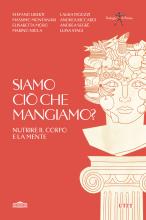In Italy, popular gambling generates an annual turnover of almost €90 billion – and €9 billion in revenue for the state – half of which comes from slot machines. In fact, there are 400 thousand “slots” in Italy, more than anywhere else in the world. For years they’ve been expanding into every neighbourhood, every place where people gather, stretching their tentacles into the daily habits of millions of Italians and giving rise to what’s known as predatory gambling. Thanks to programming technologies and design, when gambling is applied to a mass context, it not only reaffirms but also redefines the gap between play and what operates purely to systematically corrupt play, at every level. A social and cultural phenomenon that has a devastating impact on the social, economic, relational and emotional fabric of our society, with present and future ramifications we are still struggling to understand. What should be done? How can we save ourselves?
Video
Marco Dotti is a professor lecturing in the publishing industry at the University of Pavia. He specialises in public ethics connected to new professions and new technologies. He is part of the newsroom of the monthly publication Vita, where he coordinates a work group on the phenomenon of popular gambling and its impact on Italian society. In 2011, he was one of the founders of the No Slot movement, focusing on gambling, spanning from cultural anthropology to social ethics, investigations and reports. His books include Il calcolo dei dadi. Azzardo e vita quotidiana (2013), Ludocrazia. Un lessico dell’azzardo di massa (maggio 2016) published by O Barra O Edizioni; Slot city, (Round Robin edizioni, 2013); for the publisher Luca Sossella editore, he edited together with Marcello Esposito, the Italian edition of Addiction by Design. Machine Gambling in Las Vegas by Natasha Dow Schüll (2015) and he has written Bioshock (2016).
Marco Dotti & i Dialoghi
2016
Il programma sarà disponibile a breve...
Il programma sarà disponibile a breve...



